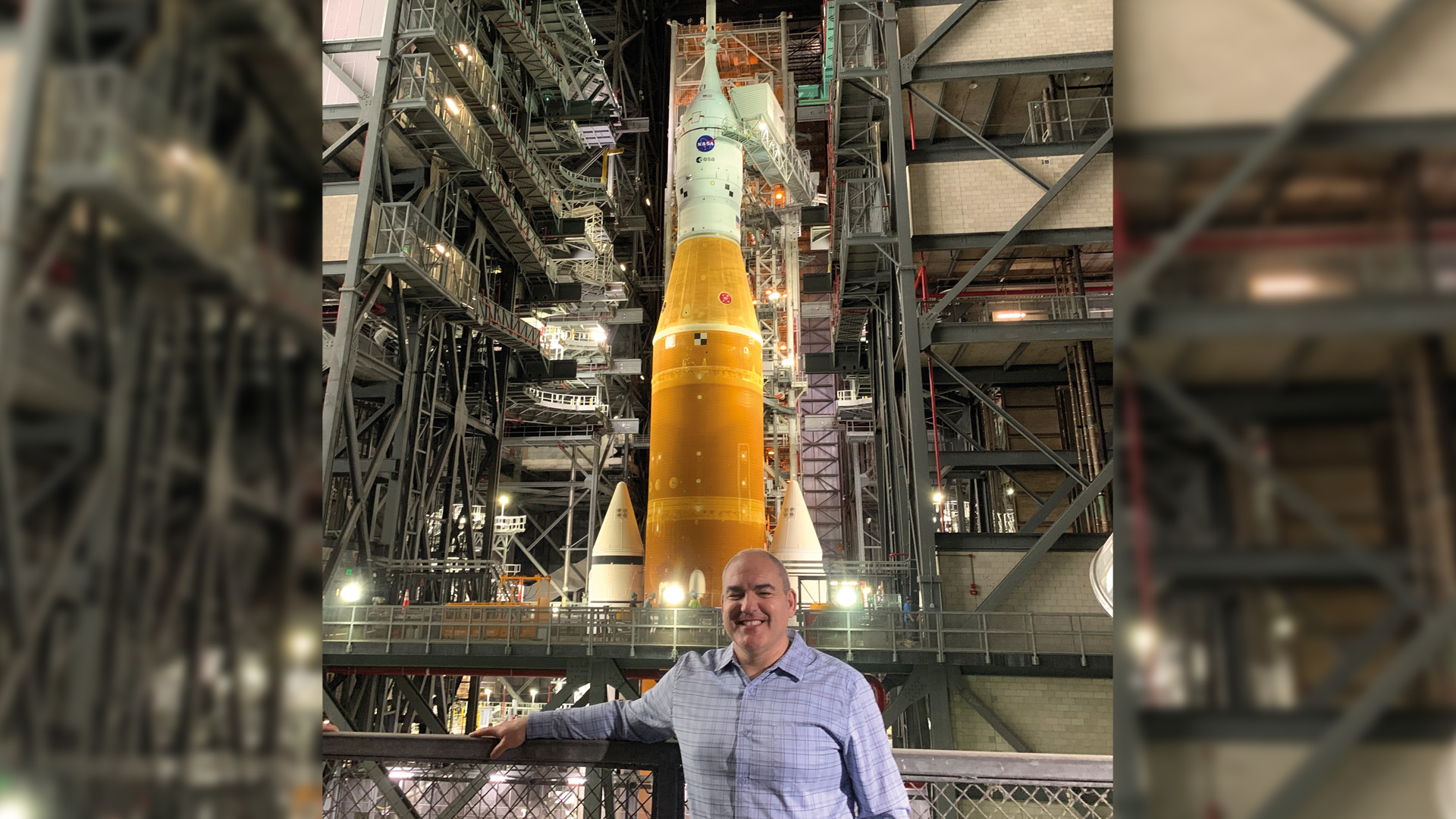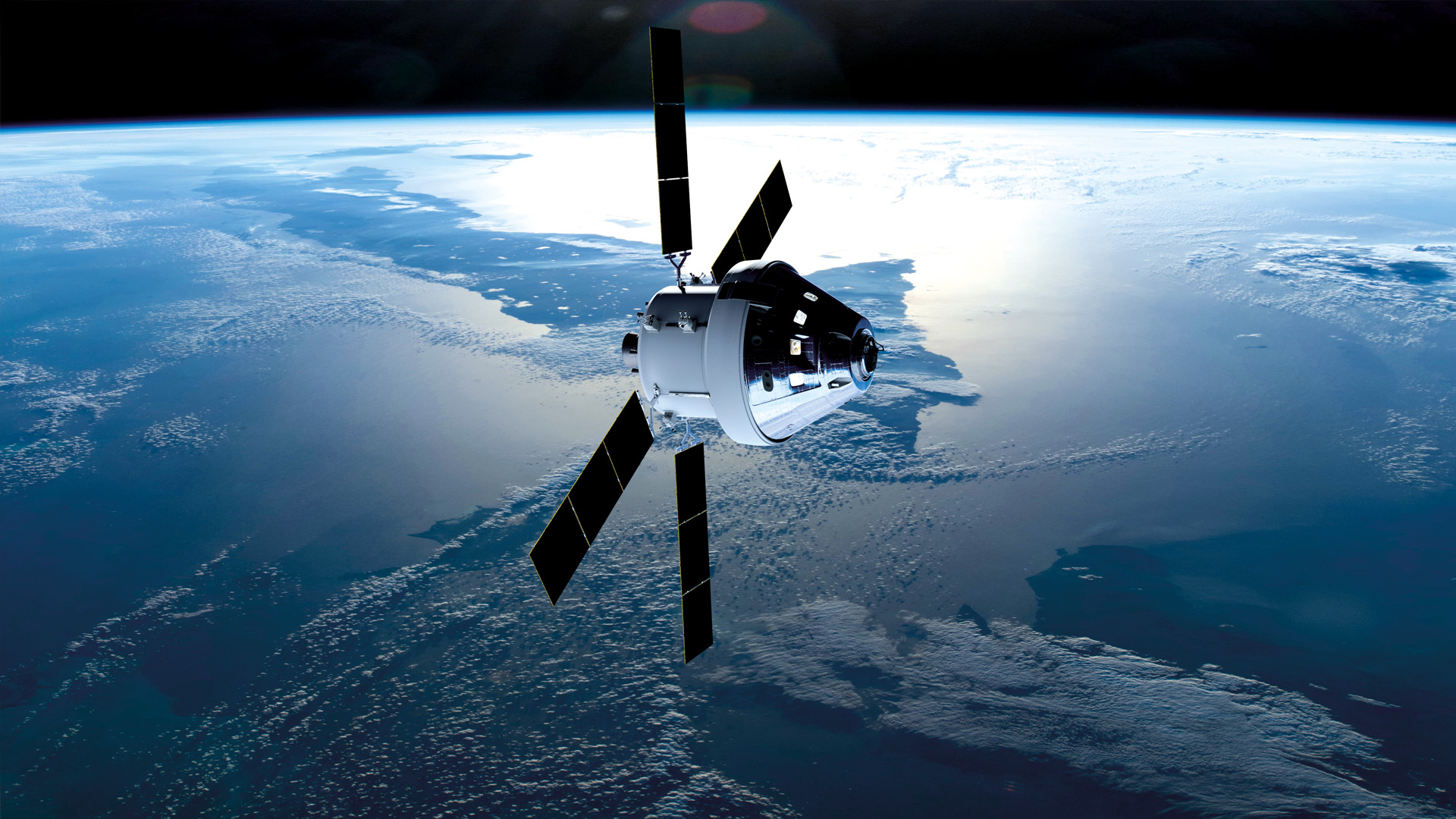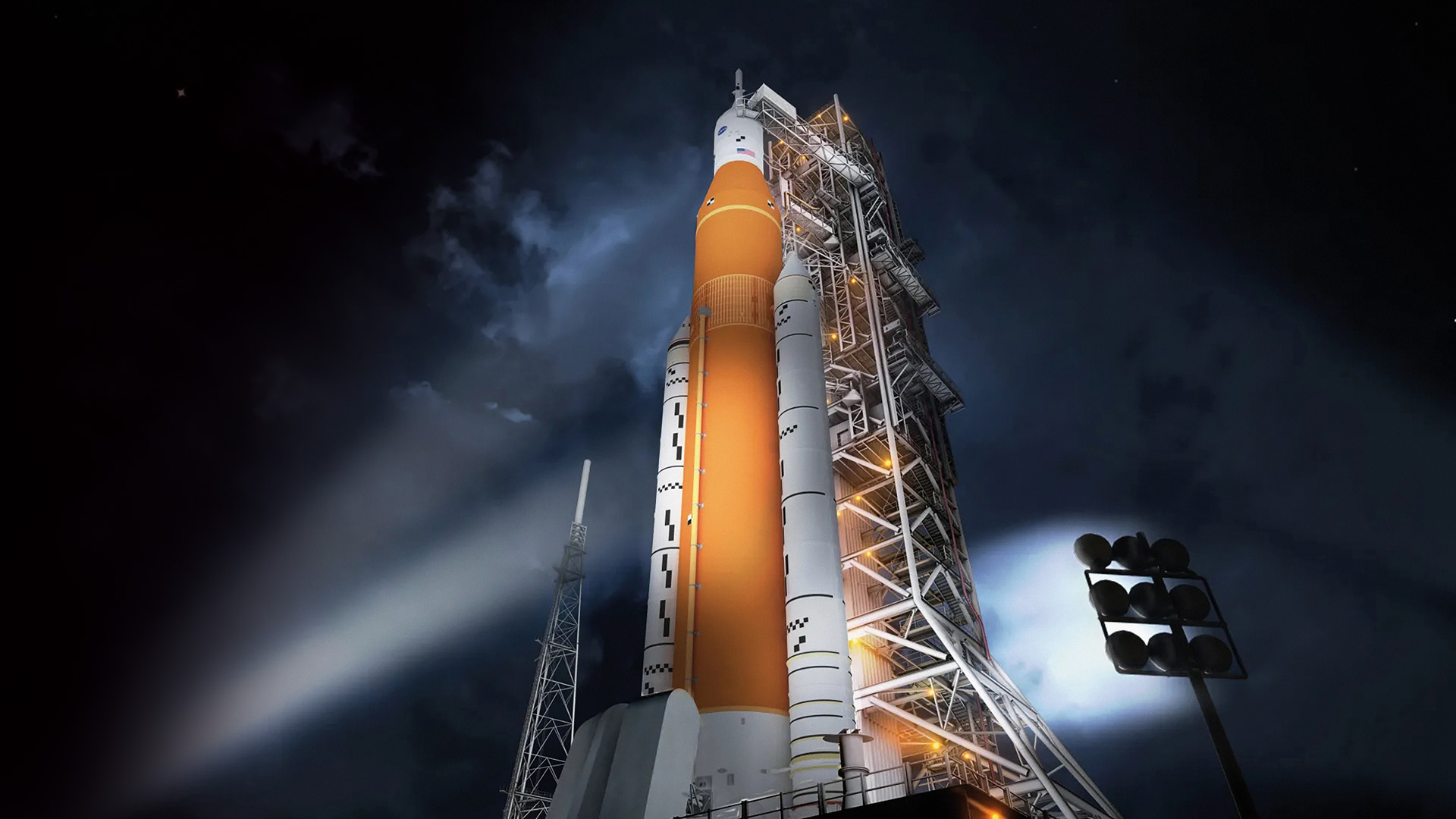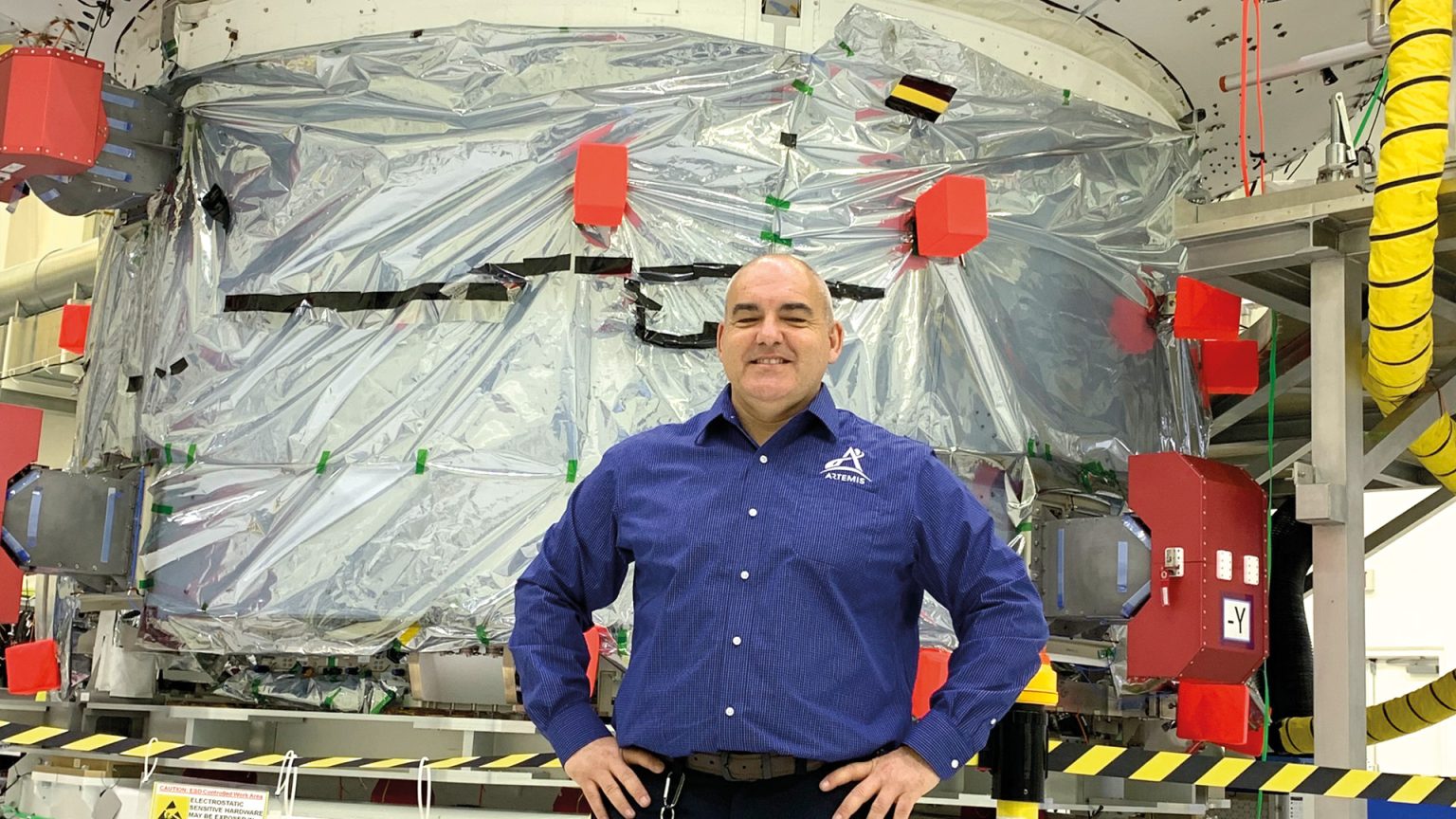How would you say NASA has changed during the last 15 years, since you came on board?
Right now which project are you the proudest to
have taken part of? What learning experiences
stand out?
Artemis is the project that I am the proudest to have participated in, because it is a new era of space exploration for humanity, out of which we will reap technological and scientific benefits for years to come, in addition to the fact that it will imply an immense source of inspiration for new generations.
During these years developing the Orion spacecraft, we have learned to adapt technologies to problems that we already knew, such as reaching the Moon, to have a much higher capability for exploration and sustainability.
We also continue to leverage the benefit of engaging in an international project and of counting with the experience and enthusiasm of many other countries, such as the European Space Agency in the Orion spacecraft.
You have recently participated in the Small Satellites & Services International Forum (SSSIF) in Malaga What have you learned from this experience?
I have noticed the drive that you can find in Europe and Spain in relation to the space sector, and especially the great interest there is in participating in Artemis by relatively small companies all the way to government agencies.
We need to continue leveraging this interest and the contribution of all of this sector to continue furthering the drive for space exploration.
Reading general-interest media outlets, it seems that the Moon is trending once again, with missions such as SLIM, Chandrayaan-3 and Artemis Where does this interest come from?
It is actually humanity’s frontier right now. Despite the fact that we went to the Moon over 50 years ago, the truth is that we still know very little about it and human exploration there was very limited.
The desire of humanity to know and expand beyond our planet Earth still feels like science fiction, and through these programs—especially Artemis—we will make it come true. That is why there is so much interest. The Apollo Program was a huge step for humanity and now we must take the next step.
What do you consider is Artemis’ main technological challenge today?
There are many. Generally, being able to live and work in a sustainable manner in deep space. You need a lot of things to be able to do that—scientific knowledge, new technology and knowing how to perform all operations, including the logistical challenges.
Unlike during the first Moon landing missions, nowadays the collaboration both between agencies and between these and the private sector is much closer. What is your take on the role of international industry today?
It will be supremely important for the private commercial sector’s drive for deep space exploration, starting with the Moon, to continue.
NASA and other government agencies must focus on the development and advancement of technology to face the most complex challenges which require greater resources and investment in terms of funds, science and technology.
But we need a powerful and interested industry to innovate in the services that we have already engaged in and privatized in near-Earth orbit, such as cargo transportation, communications, satellites for positioning services, etc. Companies that simplify the systems and operations that these services require will allow us to focus on the new challenges and advances of crewed exploration.
Last year, Spain became the twenty-fifth country to sign the Artemis Accords. Would you say space is becoming a good example of international cooperation?
Space exploration does not belong to just a select handful of countries; it must belong to all of humanity. On these premises, we must lead a coalition that is as big as possible of countries that want to contribute to this endeavor, peacefully and to everyone’s benefit.
As the person in charge of the service module integration in the Orion spacecraft, what technological characteristics would you say stand out—in particular, in relation to industry contributions?
I would highlight the potential of the European and Spanish industries in the field of spacecraft construction, including the development of structures, power generation and distribution systems and the propulsion system.
Also, the knowledge of the spacecraft integration and testing phase demonstrate the experience that the European industry already has in that regard.
Do you know Spanish astronaut Pablo Álvarez? Do you believe he will be a crewmember in an Orion spacecraft in the future?
I know him, but not in person. I hope I get to do so soon and, of course, I will welcome him with open arms when he starts training in one of the Artemis missions!
Why is there a will to reach the Moon after 50 years and what happened during all this time that this interest did not exist?
An interest for going back to the Moon and continue exploring has always existed, but we were focused on learning how to live and work in space and develop safer spacecraft more suitable for a sustainable space exploration. Space exploration budgets radically changed once the space race in the 60s came to an end after the United States reached the Moon.
In fact, they would not be sustainable today. Since then, we developed the Space Shuttle and the ISS in order to get to, live and work in space in a sustainable manner. We have also seen the cost of transporting cargo and astronauts to space plummet with the emergence of private companies who have innovated in this regard.
All of this is headed towards us being prepared for the next step, which will be to do the same in the orbit and on the surface of the Moon, with sights on learning and preparing to go to Mars.
In closing, if you had to venture a date... when do you believe humanity could reach Mars?
This decade we will return to the Moon with astronauts and set the foundations for surface exploration, which we will expand in the following decade the 2030s.
In my opinion, we will be developing the systems that will take us to Mars in the late 2030s, so then or in the early 2040s I hope that we will see the first astronauts set foot on Mars. We could also think that, if the drive of private companies continues and there is an exponential innovation curve, this could happen much earlier. We will see.
I would highlight the potential of the European and Spanish industries in the field of spacecraft construction, including the development of structures, power generation and distribution systems and the propulsion system.
Also, the knowledge of the spacecraft integration and testing phase demonstrate the experience that the European industry already has in that regard.








